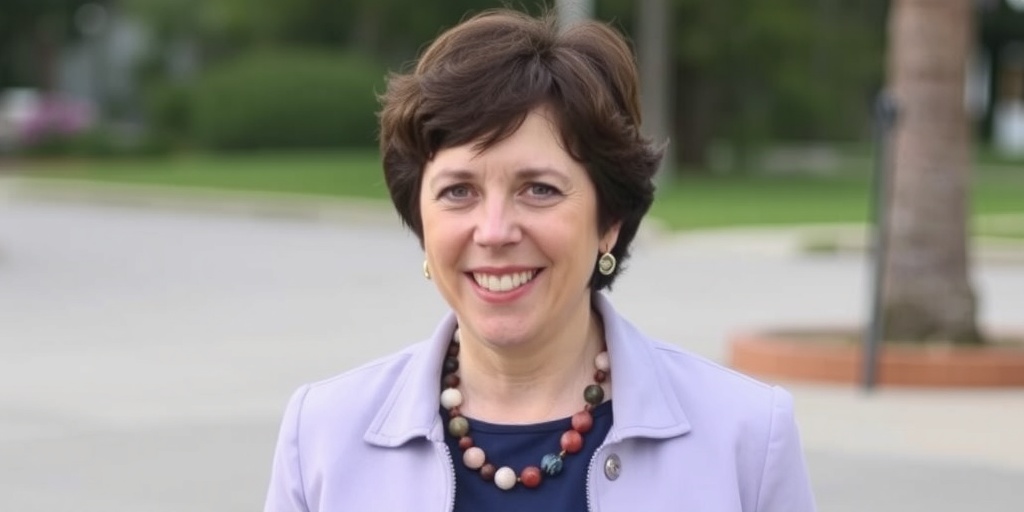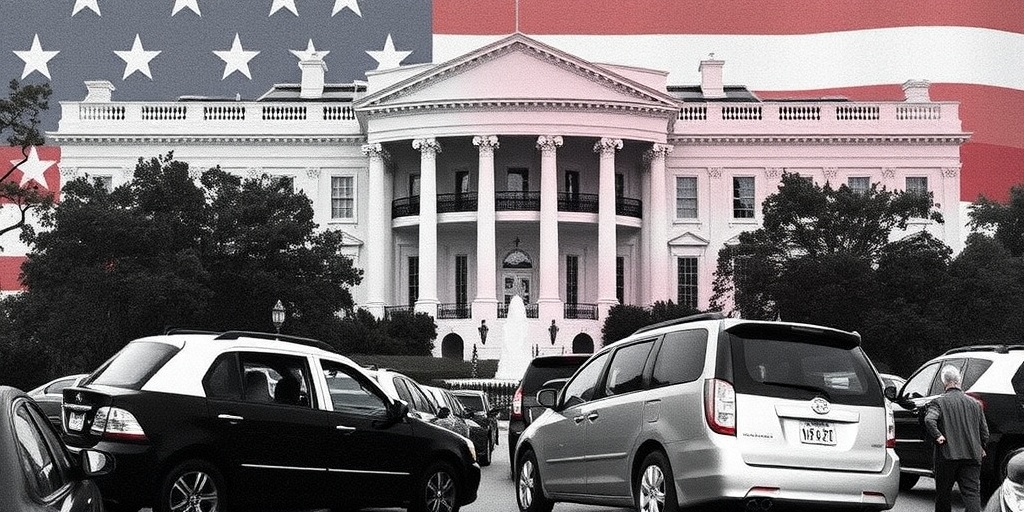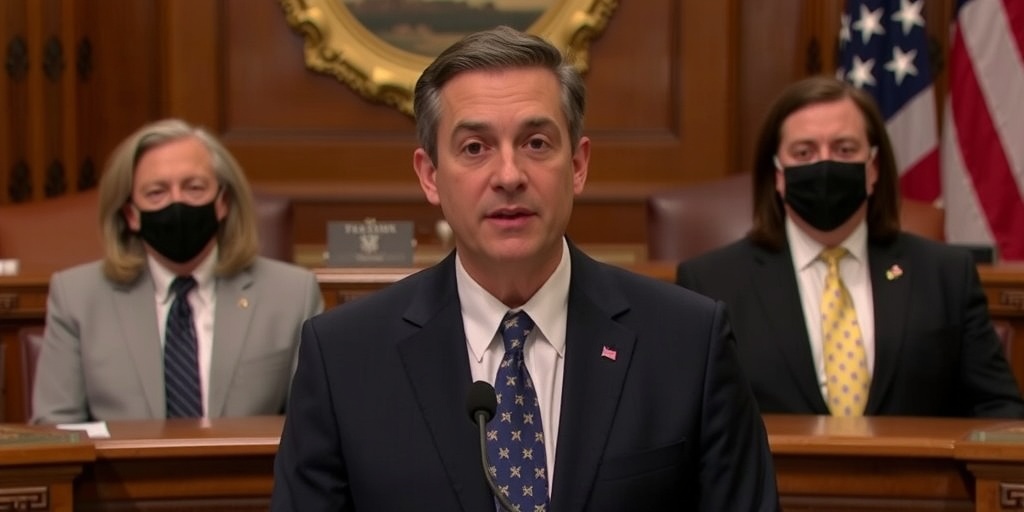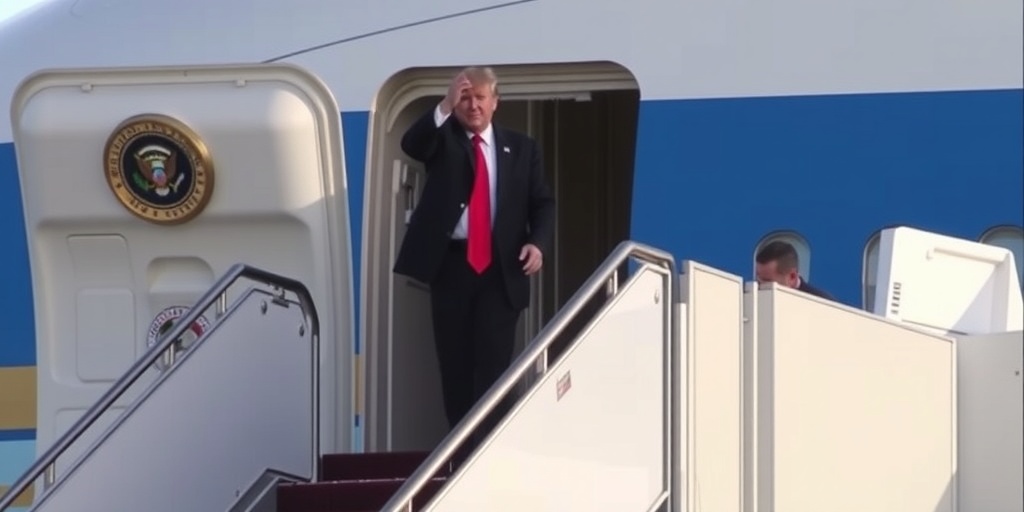Now Reading: Trump and Johnson Propose Stopgap Bill to Prevent Shutdown
-
01
Trump and Johnson Propose Stopgap Bill to Prevent Shutdown
Trump and Johnson Propose Stopgap Bill to Prevent Shutdown
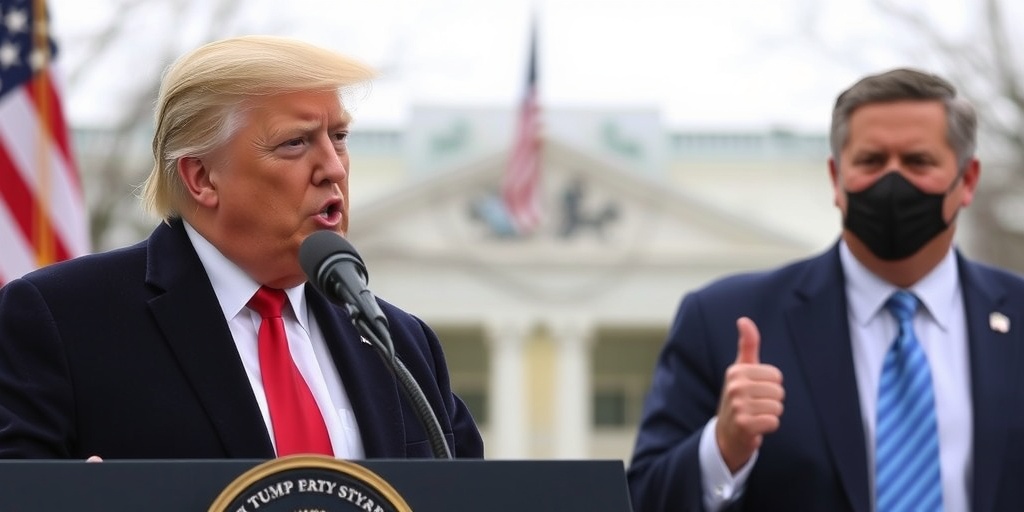
Government Shutdown Averted? Trump and Johnson Propose Stopgap Bill
As the clock ticks down toward a potential government shutdown, President Trump and Speaker of the House Mike Johnson are rallying Republican support for a stopgap funding bill. This proposal aims to extend federal funding at current levels until the end of the fiscal year on September 30. However, this move is viewed by many as a capitulation by the Republican party, as it maintains spending levels established under former President Biden’s administration and fails to account for budget cuts being implemented by the Department of Government Efficiency, led by Elon Musk.
In a message posted on social media, Trump expressed his commitment to collaborating with House Republicans on the Continuing Resolution. He framed it as an opportunity to buy time for the Republican agenda while asserting, “Conservatives will love this Bill, because it sets us up to cut Taxes and Spending in Reconciliation, all while effectively FREEZING Spending this year.”
Despite this optimistic outlook, the bill’s passage by the looming March 14 midnight deadline remains uncertain. Trump’s outreach primarily targets far-right House members who have historically resisted government funding bills, particularly those that consolidate funding for various federal programs without reducing allocations.
During a meeting at the White House with hard-line Republicans on Tuesday, Trump encouraged party unity in backing the bill, and some skeptics indicated they might support it. However, many of these members raised concerns based on Trump’s record of bypassing legislative mandates to implement deeper budget cuts unilaterally.
Discontent with the proposal is prevalent among lawmakers from both parties on the appropriations committees in the House and Senate. They argue that the stopgap bill would deprive several departments of essential funding while unduly increasing the executive branch’s power over fiscal matters.
Senator Susan Collins, a Republican and chairwoman of the Senate Appropriations Committee, expressed her disapproval by stating, “It locks in programs that should be trimmed. It doesn’t give increases to agencies that need them, like the Department of Defense, and it’s based on the Biden budget. Why would we want to lock in the priorities of the Biden budget?”
In contrast, negotiations have been ongoing among appropriators from both parties aiming to finalize an agreement for individual spending bills that could effectively manage funding for the rest of the fiscal year. However, meeting the shutdown deadline poses a significant challenge, making it improbable for Congress to enact those measures in time.
Democratic leaders have urged their members to reject the proposed extension through September, advocating for a commitment to individual negotiations instead. Representative Hakeem Jeffries, the Democratic leader, stressed that if Republicans proceed with this strategy, as Speaker Johnson suggested, it would be an effort undertaken solely by them.
“The worst of all worlds is a government shutdown, and that, to me, represents the ultimate failure to govern,” Collins noted. While recognizing the necessity of maintaining existing funding, she articulated her concerns regarding potential lapses in federal funding.
The proposed stopgap measure also raises questions about how federal funds would be allocated. Unlike standard spending bills, temporary extensions provide broader discretion to the administration, allowing Trump to act unilaterally on large allocations. This poses risks given Trump’s previous tendencies to halt funds authorized by Congress for multiple programs without legislative approval.
Additionally, Senator Collins highlighted a request from the administration for an extra $30 billion for the Pentagon, intending for officials to allocate those funds based on their discretion. This could effectively empower the executive branch in spending decisions at a time when cohesive legislative oversight is crucial.
While some conservative members have historically resisted stopgap measures due to their nature of bundling funding, there is emerging support under Trump’s leadership for this approach. Representative Tim Burchett of Tennessee indicated he was still weighing his options, depending on whether the proposal is “clean” and devoid of additional policy riders or funding stipulations.
Others have signaled a willingness to consider the temporary funding strategy now that it’s championed by Trump, marking a departure from previous opposition due to the president’s demonstrated ability to navigate and defund certain programs independently. Representative Chip Roy of Texas shared a pragmatic view, stating, “I want to freeze spending and bad policies… I don’t see that working out as well as just freezing spending.”
The internal conflict within the Republican ranks concerning the stopgap bill highlights the ongoing struggle for party unity amidst legislative challenges. While looking to avert a government shutdown, how Republicans manage this proposal may influence their broader fiscal strategies moving forward.
Stay Informed With the Latest & Most Important News
Previous Post
Next Post
-
 01New technology breakthrough has everyone talking right now
01New technology breakthrough has everyone talking right now -
 02Unbelievable life hack everyone needs to try today
02Unbelievable life hack everyone needs to try today -
 03Fascinating discovery found buried deep beneath the ocean
03Fascinating discovery found buried deep beneath the ocean -
 04Man invents genius device that solves everyday problems
04Man invents genius device that solves everyday problems -
 05Shocking discovery that changes what we know forever
05Shocking discovery that changes what we know forever -
 06Internet goes wild over celebrity’s unexpected fashion choice
06Internet goes wild over celebrity’s unexpected fashion choice -
 07Rare animal sighting stuns scientists and wildlife lovers
07Rare animal sighting stuns scientists and wildlife lovers














